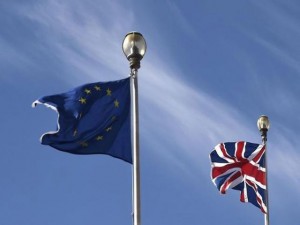In a historic move, the European Union (EU) met yesterday in Brussels without one of the bloc’s members, the United Kingdom for the first time.
The EU leaders who met to discuss Britain’s vote to leave the bloc also called for an orderly withdrawal of Britain from the bloc to minimise instability as they pledged to learn lessons from the UK’s political earthquake and do better at serving their citizens.
They lamented the British decision to part ways then began to lay plans for a new union minus its second-largest economy. That included setting the parameters of Britain’s future relationship with the EU, and insisting that negotiations to finalise secession won’t be started until the UK gives official notification of departure.
“Europe must be not harsh, but very clear with the UK,” Italian Prime Minister Matteo Renzi told reporters.
According to a report by Bloomberg News, in their final statement released Wednesday, leaders of the 27 other nations said “there is a need to organise the withdrawal of the UK from the EU in an orderly fashion.”
They further pointed out that while the decision to trigger secession talks lies with Britain, and the country could wait until a new prime minister was in place, “this should be done as quickly as possible.”
The language was more abrupt than a prior draft obtained by Bloomberg News which said only that “it would be preferable to do this quickly so as to avoid entering into a prolonged period of uncertainty.”
Banks and the pound bore the brunt of the market turmoil unleashed by the U.K.’s June 23 vote to quit the EU after more than four decades, an upset that triggered a political and economic earthquake that reverberated across Europe.
The EU also said that there could be no pick and choose single market for the UK.
President of the European Commission, Jean-Claude Juncker, said anyone seeking access to the EU’s market must adhere to criteria “without exception.”
There could be “no negotiation without notification,” he said.
The German and French leaders and European Council President, Donald Tusk, said the same, the BBC reports.
According to Tusk, there would be another meeting of EU leaders, excluding the UK, on September 16 in Bratislava to discuss so-called “Brexit.”
German Chancellor Angela Merkel also reiterated that there would be no discussions with the UK until Article 50 was formally triggered by the UK government.
“We wish that that would happen as soon as possible,” she said.
Meanwhile, the British High Commissioner to Nigeria, Paul Arkwright, has dismissed the possibility of holding another referendum that may reconsider his country’s decision to leave the EU, insisting that the nation has to look forward.
Arkwright who was on Channels Television yesterday said that the outcome of the referendum was clear.
Recall that over 33 million people in the United Kingdom had voted in the June 24 referendum on whether to exit from the EU or not.
While 51.9 per cent voted to leave, 48.1 per cent voted to remain. After the decision, a group of persons have been pushing a campaign for a second referendum.
But Arkwright insisted that Britons had made a choice.
“I don’t think there will be a second referendum. This is a once in a generation opportunity for the United Kingdom to vote on this huge issue. Those that think it was a mistake must be part of the 48 per cent that voted to remain in the EU.
“I think we need to look forward. It was a massive exercise in democracy. That is a very significant number and the outcome is pretty clear,” he stated.
On why the decision was made, the high commissioner said different people had different reasons for voting to leave.
“A lot of the people felt two much sovereignty has been conceded to the European Union. There were concerns around control of the borders. Immigration was one of the big issues that came up. That is a very clear instruction that the British government will carry out and like any good civil servant, that is part of my job as well,” he explained.
On the next step that would be taken, Arkwright said the British government would need to work out the complicated negotiations which would involve a ‘divorce settlement’ between the UK and the EU.
He emphasised that the fundamentals of the UK were still there.
“The economy is still strong. We are still very much an international player. A permanent member of the Security Council and lots of other international organisations. I don’t think that the standing of the UK has been diminished by this thought. But I think it shows that we an independent nation and that is the choice of the people,” he stressed.
Article 50 will trigger a process that could last up to two years, a period he said the status quo would be maintained.
Arkwright also pointed out that businesses would continue as they had in the UK and that the fundamentals of the British economy were still there.
“Britain remains open for business and there are plenty opportunities of doing business in the UK and the British government will maintain the excellent business environment which has enabled businesses to do well so far in the UK,” he reiterated.
Leadership…….
This page has been viewed 232 times


























